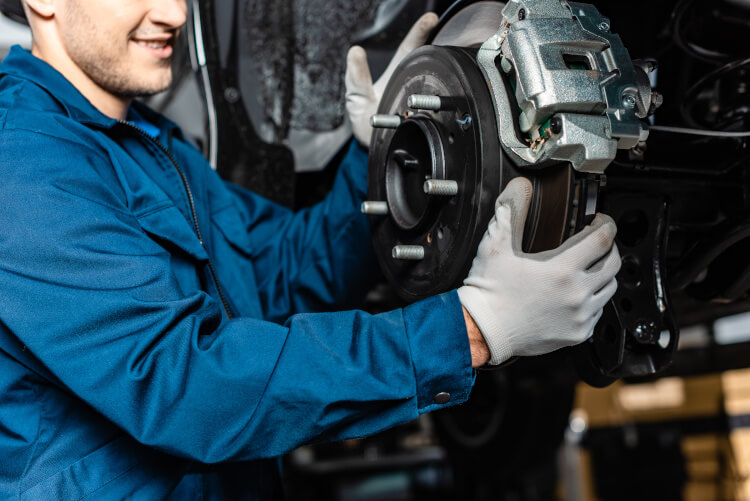Join the conversation
We love to hear from our customers. Connect with us today and let’s start a conversation.
...searching

Your car’s braking system plays a critical role in road safety – and it’s one of the key areas checked during the annual
MOT test.
But can worn brake discs actually cause your vehicle to fail its MOT? Let’s explore everything you need to know about this mechanism and how it relates to your MOT.
Yes, worn brake discs can fail an MOT test. When a vehicle undergoes its MOT, the tester checks the braking system’s condition and performance. If the brake discs are worn below the manufacturer’s minimum thickness, it’s recorded as a major defect and will result in an immediate
MOT fail.
Additionally, if the brake disc is loose, cracked, or dangerously compromised, it will be marked as a dangerous defect, meaning the car cannot be driven until it’s repaired.
In some cases, discs may be close to the limit and still pass, but they will be marked with an advisory notice, suggesting replacement soon.
Regular checks and timely replacements are crucial to avoid an unexpected fail.
When you book your vehicle in for its MOT, the tester will carry out a thorough inspection of the braking system.
This includes checking the brake pads, discs, handbrake (or parking brake), brake fluid, and warning lights like the ABS.
Brake discs, in particular, are checked for two main things:
Brake discs naturally wear out over time, mainly due to the friction created every time you brake. Factors such as driving habits, vehicle weight, and environmental conditions (like road salt or moisture) can accelerate disc wear.

A worn brake disc becomes an MOT issue when:
You might not always spot these issues yourself, but if you feel a juddering or vibrating brake pedal, or hear grinding noises when braking, it’s time to have the system checked.
It’s worth noting that if your discs are close to the minimum thickness but still within spec, the tester may issue an advisory notice. This means they’re legal for now, but you should plan a replacement soon to avoid future failure.

Yes – with regular checks and maintenance. Here’s how:

Brake discs are a vital part of your car’s safety system – and if they’re too thin, damaged, or loose, your vehicle will fail its MOT.
By staying on top of brake maintenance and acting on warning signs, you can avoid MOT failures and keep your vehicle safe on the road.
Remember, if your car fails its MOT with a major or dangerous defect, you cannot legally drive it (except for certain pre-arranged retests or repairs).
Regular servicing and a proactive approach to brake care can save you the hassle and expense of an MOT failure.

We love to hear from our customers. Connect with us today and let’s start a conversation.